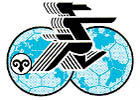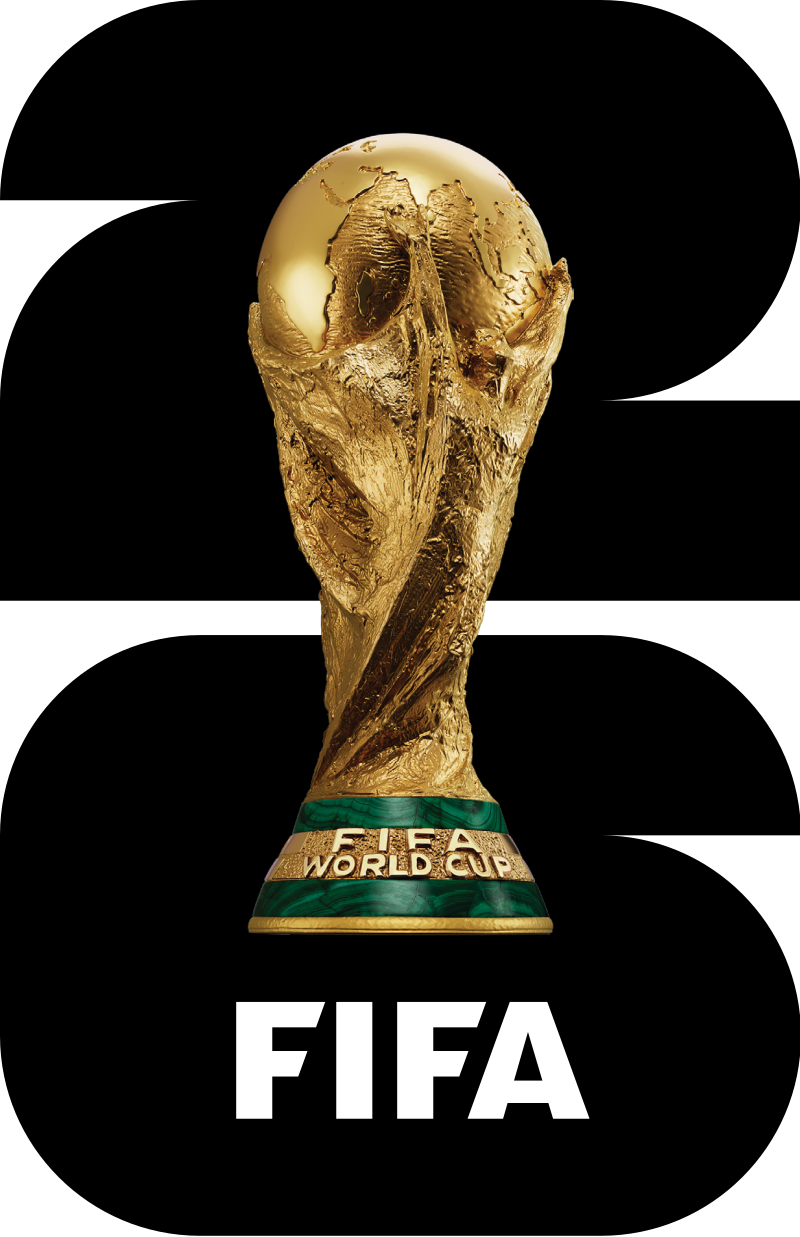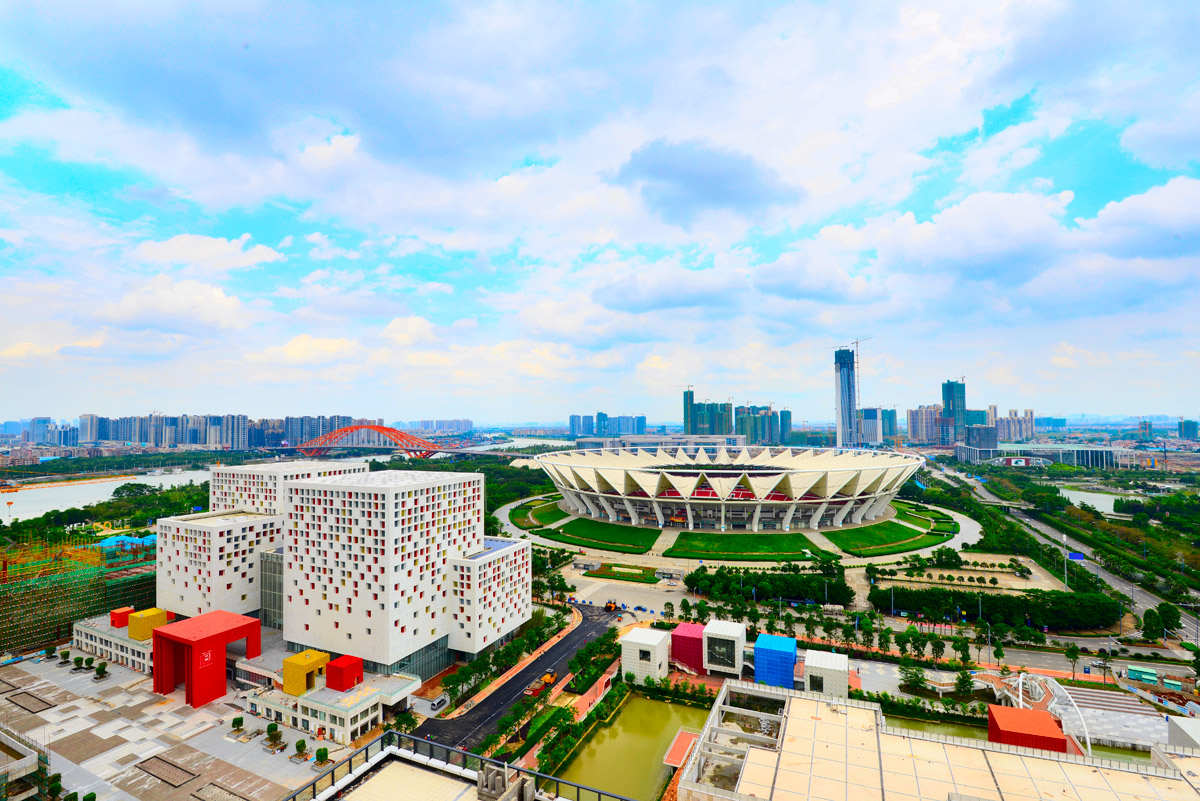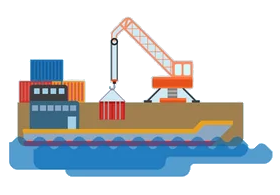
Deutsch-Chinesische Enzyklopädie, 德汉百科
 Women's Soccer World Cup 1991
Women's Soccer World Cup 1991

 AFC Champions League 2015
AFC Champions League 2015
 AFC Champions League 2016
AFC Champions League 2016
 AFC Champions League 2017
AFC Champions League 2017
 AFC Champions League 2018
AFC Champions League 2018
 AFC Champions League 2019
AFC Champions League 2019
 Asian Football Confederation
Asian Football Confederation
 CONCACAF
CONCACAF
 Confederación Sudamericana de Fútbol
Confederación Sudamericana de Fútbol
 Confederation of African Football
Confederation of African Football
 FIFA
FIFA
 FIFA Fussball-Weltmeisterschaft 1990
FIFA Fussball-Weltmeisterschaft 1990
 FIFA Fussball-Weltmeisterschaft 1994
FIFA Fussball-Weltmeisterschaft 1994
 FIFA Fussball-Weltmeisterschaft 1998
FIFA Fussball-Weltmeisterschaft 1998
 FIFA Fussball-Weltmeisterschaft 2002
FIFA Fussball-Weltmeisterschaft 2002
 FIFA Fussball-Weltmeisterschaft 2006
FIFA Fussball-Weltmeisterschaft 2006
 FIFA Fussball-Weltmeisterschaft 2010
FIFA Fussball-Weltmeisterschaft 2010
 FIFA Fussball-Weltmeisterschaft 2014
FIFA Fussball-Weltmeisterschaft 2014
 FIFA Fussball-Weltmeisterschaft 2018
FIFA Fussball-Weltmeisterschaft 2018
 FIFA Fussball-Weltmeisterschaft 2022
FIFA Fussball-Weltmeisterschaft 2022

 FIFA Fussball-Weltmeisterschaft 2026
FIFA Fussball-Weltmeisterschaft 2026
 FIFA-Konföderationen-Pokal 2013
FIFA-Konföderationen-Pokal 2013
 FIFA-Konföderationen-Pokal 2017
FIFA-Konföderationen-Pokal 2017
 Women's Soccer World Cup 1991
Women's Soccer World Cup 1991
 Women's Soccer World Cup 1995
Women's Soccer World Cup 1995
 Women's Soccer World Cup 1999
Women's Soccer World Cup 1999
 Women's Soccer World Cup 2003
Women's Soccer World Cup 2003
 Women's Soccer World Cup 2007
Women's Soccer World Cup 2007
 Women's Soccer World Cup 2011
Women's Soccer World Cup 2011
 Women's Soccer World Cup 2015
Women's Soccer World Cup 2015
 Women's Soccer World Cup 2019
Women's Soccer World Cup 2019
 Oceania Football Confederation
Oceania Football Confederation
 Switzerland
Switzerland
 Zurich
Zurich

 Sport
Sport
 (F)Football Women's World Cup
(F)Football Women's World Cup

 Sport
Sport
 (F)AFC Champions League
(F)AFC Champions League

 Sport
Sport
 (F)International soccer leagues
(F)International soccer leagues

 Sport
Sport
 (F)CAF Champions League
(F)CAF Champions League

 Sport
Sport
 (F)CONCACAF Champions League
(F)CONCACAF Champions League

 Sport
Sport
 (F)Copa Libertadores
(F)Copa Libertadores

 Sport
Sport
 (F)UEFA Champions League
(F)UEFA Champions League

 Sport
Sport
 (F)European football championship
(F)European football championship

 Sport
Sport
 (F)FIFA U-20 World Cup
(F)FIFA U-20 World Cup

 Sport
Sport
 (F)FIFA Confederations Cup
(F)FIFA Confederations Cup

 Sport
Sport
 (F)Soccer Asia Cup
(F)Soccer Asia Cup

 Sport
Sport
 (F)African Cup of Nations
(F)African Cup of Nations
 UEFA Champions League 2015/16
UEFA Champions League 2015/16
 UEFA Champions League 2016/17
UEFA Champions League 2016/17
 UEFA Champions League 2017/18
UEFA Champions League 2017/18
 UEFA Champions League 2018/19
UEFA Champions League 2018/19
 UEFA Champions League 2019/20
UEFA Champions League 2019/20
 UEFA Europa League 2017/18
UEFA Europa League 2017/18
 UEFA Europa League 2018/19
UEFA Europa League 2018/19
 UEFA Europa League 2019/20
UEFA Europa League 2019/20
 UEFA Nations League
UEFA Nations League
 Union of European Football Associations
Union of European Football Associations

 Important International Organizations
Important International Organizations

国际足球联合会(法语:Fédération Internationale de Football Association;英语:International Federation of Association Football[注 1]),简称国际足联(FIFA),是管理英式足球、室内五人足球和沙滩足球的国际体育组织,下辖211个会员协会。总部设于瑞士苏黎世。现任主席为吉安尼·因凡蒂诺。国际足联负责组织世界重大足球赛事,当中最著名的是4年举行一次的世界杯。[3]
Die Fédération Internationale de Football Association (deutsch Internationaler Verband des Association Football), kurz FIFA oder Fifa, ist ein privater Verband, der „die Kontrolle des Association Football in all seinen Formen“ zum Zweck hat.[3] Der Weltfußballverband ist ein gemeinnütziger Verein im Sinne der Artikel 60 ff. des Schweizerischen Zivilgesetzbuches mit Sitz in Zürich und im Handelsregister eingetragen.[4][5][6] Die FIFA muss als nicht steuerbefreiter Verein im Kanton Zürich eine reduzierte Gewinnsteuer von 4 % entrichten.[1][2]
Die FIFA erwirtschaftet in ihrer aktuellen Vierjahresertragsperiode 5,66 Milliarden Dollar, die zu 89 % aus der Vermarktung der von ihr organisierten Männer-Fußball-WM stammen. Darüber hinaus organisiert sie auch die Frauen-Fußball-WM und zahlreiche weitere Turniere. Ihr Präsident ist Gianni Infantino.
国際サッカー連盟(こくさいサッカーれんめい、仏: Fédération Internationale de Football Association)は、サッカー(アソシエーション式フットボール)の国際競技連盟であり、スイスの法律に基づいた自立法人である。略称はFIFA(フランス語発音: [fifa] フィファ、英語発音: [ˈfiːfə] フィーファ)。本部はスイスのチューリッヒに置かれている。
2018年時点で全211の国内競技連盟が加盟し[1]、国際競技連盟としては世界最大である[3]。FIFAワールドカップ・FIFA女子ワールドカップの主催が、もっとも大きな任務となっている。
The Fédération Internationale de Football Association[a] (FIFA /ˈfiːfə/ FEE-fə; French for International Federation of Association Football; Spanish: Federación Internacional de Fútbol Asociación; German: Internationaler Verband des Association Football) is a non-profit organization which describes itself as an international governing body of association football, fútsal, beach soccer, and efootball. It is the highest governing body of football.
FIFA was founded in 1904[3] to oversee international competition among the national associations of Belgium, Denmark, France, Germany, the Netherlands, Spain, Sweden, and Switzerland. Headquartered in Zürich, its membership now comprises 211 national associations. Member countries must each also be members of one of the six regional confederations into which the world is divided: Africa, Asia, Europe, North & Central America and the Caribbean, Oceania, and South America.
Today, FIFA outlines a number of objectives in the organizational Statues, including growing football internationally, providing efforts to ensure football is accessible to everyone, and advocating for integrity and fair play.[4] FIFA is responsible for the organization and promotion of football's major international tournaments, notably the World Cup which commenced in 1930 and the Women's World Cup which commenced in 1991. Although FIFA does not solely set the rules of football, that being the responsibility of the International Football Association Board of which FIFA is a member, it applies and enforces the rules across all FIFA competitions.[5] All FIFA tournaments generate revenue from sponsorship; in 2018, FIFA had revenues of over US $4.6 billion, ending the 2015–2018 cycle with a net positive of US$1.2 billion, and had cash reserves of over US$2.7 billion.[6]
Reports by investigative journalists have linked FIFA leadership with corruption, bribery, and vote-rigging related to the election of FIFA president Sepp Blatter and the organization's decision to award the 2018 and 2022 World Cups to Russia and Qatar, respectively. These allegations led to the indictments of nine high-ranking FIFA officials and five corporate executives by the U.S. Department of Justice on charges including racketeering, wire fraud, and money laundering. On 27 May 2015, several of these officials were arrested by Swiss authorities, who were launching a simultaneous but separate criminal investigation into how the organization awarded the 2018 and 2022 World Cups. Those among these officials who were also indicted in the U.S. are expected to be extradited to face charges there as well.[7][8][9] Many officials were suspended by FIFA's ethics committee including Sepp Blatter[10] and Michel Platini.[11] In early 2017 reports became public about FIFA president Gianni Infantino attempting to prevent the re-elections[12] of both chairmen of the ethics committee, Cornel Borbély and Hans-Joachim Eckert, during the FIFA congress in May 2017.[13][14] On 9 May 2017, following Infantino's proposal,[15] FIFA Council decided not to renew the mandates of Borbély and Eckert.[15] Together with the chairmen, 11 of 13 committee members were removed.[16]
La Fédération internationale de football association2 (souvent désignée par l'acronyme FIFA) est la fédération sportive internationale du football, du futsal et du football de plage. Association des fédérations nationales fondée le 21 mai 1904 à Paris, elle a pour vocation de gérer et de développer le football dans le monde. La Coupe du monde de football est créée en 1924 par Jules Rimet3, président de la fédération internationale de 1920 à 1954. Le terme Football Association est le nom originel du football, utilisé pour le distinguer des autres sports de ballon.
Fondée par les fédérations d'Allemagne, de Belgique, du Danemark, d'Espagne, de France, des Pays-Bas, de Suède et de Suisse, elle compte au 13 mai 2016 211 associations nationales affiliées à travers le monde, qui doivent être reconnues par l'une des six confédérations continentales. Son siège est situé depuis 1932 à Zurich, en Suisse.
Bien qu'étant officiellement une association à but non lucratif, la FIFA brasse un chiffre d'affaires très important du fait de l'organisation des compétitions et de leur sponsoring. En 2013, la FIFA génère 1,3 milliard de dollars de chiffre d'affaires, et dispose de réserves évaluées à 1,4 milliard de dollars4. La FIFA est chargée de l'organisation des grands tournois mondiaux, et notamment des Coupes du monde masculines, depuis le 13 juillet 1930, et féminines, depuis le 30 novembre 1991.
Après plusieurs années de rumeurs et d'enquêtes de journalistes sur les affaires financières au sein de la FIFA, notamment autour de l'attribution de l'organisation des Coupes du monde de 2018 et 2022 à la Russie et au Qatar, une enquête lancée par le département de la Justice des États-Unis pour des faits de corruption aboutit à un grand scandale en 2015, à la suite duquel le président Sepp Blatter, le 2 juin 2015, trois jours après sa réélection pour un cinquième mandat, annonce qu'il convoque un congrès extraordinaire, prévu en février 2016, afin de remettre son mandat de président à disposition. Le 8 octobre 2015, la commission d'éthique de la FIFA suspend Sepp Blatter de manière provisoire, pendant 90 jours5. Le 21 décembre 2015, la commission suspend Sepp Blatter pour 8 ans6. Cette suspension est ramenée à six ans le 24 février 2016, peu avant l'élection de son successeur, Gianni Infantino, le 26 février 2016.
La Fédération Internationale de Football Association (in italiano "Federazione internazionale di calcio"[Nota 1]), più nota con l'acronimo FIFA, è la federazione internazionale che governa gli sport del calcio, del calcio a 5 e del beach soccer. La sua sede si trova a Zurigo, in Svizzera, e il presidente è Gianni Infantino, eletto nel 2016.
La federazione fu fondata a Parigi il 21 maggio 1904 e si occupa dell'organizzazione di tutte le manifestazioni intercontinentali degli sport sopraccitati, tra le quali la più importante è sicuramente il Campionato mondiale di calcio, che premia il vincitore con il trofeo della Coppa del Mondo. Tale torneo viene disputato ogni quattro anni dal 1930, eccetto che per il 1942 e il 1946 a causa della Seconda guerra mondiale, e la federazione ha il compito di scegliere il paese organizzatore che ospita la fase finale della manifestazione.
La Fédération Internationale de Football Association2 (en español: Federación Internacional de Fútbol Asociación),3 universalmente conocida por sus siglas FIFA, es la institución que gobierna las federaciones de fútbol en todo el planeta. Se fundó el 21 de mayo de 1904 y tiene su sede en Zúrich, Suiza. Forma parte del IFAB, organismo encargado de modificar las reglas del juego. Además, la FIFA organiza la Copa Mundial de Fútbol, los otros campeonatos del mundo en sus distintas categorías, ramas y variaciones de la disciplina, y los Torneos Olímpicos a la par del COI.
La FIFA agrupa 211 asociaciones o federaciones de fútbol de distintos países, contando con 17 países afiliados más que la Organización de las Naciones Unidas, tres menos que la Asociación Internacional de Federaciones de Atletismo y dos menos que la Federación Internacional de Baloncesto.45
Междунаро́дная федера́ция футбо́ла[1] (фр. Fédération Internationale de Football Association, сокращённо FIFA, в русской транслитерации — ФИФА́) — главная футбольная организация, являющаяся крупнейшим международным руководящим органом в футболе, мини-футболе и пляжном футболе. Штаб-квартира ФИФА находится в швейцарском городе Цюрихе.
Под эгидой ФИФА проходят все футбольные турниры всемирного масштаба, в числе которых чемпионат мира ФИФА, аналогичный турнир среди женщин, молодёжные и юношеские турниры, Кубок конфедераций и клубный чемпионат мира.

Foshan, selten auf kantonesisch Fatshan (chinesisch 佛山市, Pinyin Fóshān shì, Jyutping Fat6saan1 Si5 ‚Buddhaberg‘) ist eine bezirksfreie Stadt in der südchinesischen Provinz Guangdong. Sie liegt im Delta des Perlflusses, nur etwa 20 km von Guangdongs Metropole Guangzhou entfernt.
佛山,前身为管辖珠江三角洲的粤中行署、佛山专区, 现广东省省辖市,全国重要的制造业基地,国家历史文化名城,珠三角地区西翼经贸中心和综合交通枢纽 。佛山位于广东省中部,地处珠三角腹地,毗邻港澳,东接广州,南邻中山。是“广佛都市圈”、“广佛肇经济圈”、“珠江-西江经济带”的重要组成部分,全国先进制造业基地、广东重要的制造业中心,在广东省经济发展中处于领先地位。
 China
China
 Chinese Super League 2019
Chinese Super League 2019
 Women's Soccer World Cup 1991
Women's Soccer World Cup 1991

 History
History
 N 2000 - 2100 AD
N 2000 - 2100 AD

 History
History
 M 1500 - 2000 AD
M 1500 - 2000 AD
 Guangdong Sheng-GD
Guangdong Sheng-GD

 International cities
International cities
 ***Global Urban Economic Competitiveness
***Global Urban Economic Competitiveness
 Silk road
Silk road

 Sport
Sport
 The Ocean Race
The Ocean Race

 Important port
Important port

广州,简称穗,别称羊城、花城,广东省省会,位于广东省中南部,东江、西江、北江交汇处,珠江三角洲北缘,濒临中国南海。
广州对外贸易发达,得益于良好的地理位置,广州自秦汉至明清,一直是中国对外贸易的重要港口城市。汉武帝时期,即有中国船队从广州出发,远航至东南亚和南亚诸国通商贸易。到明清时期,广州更是特殊开放的口岸,较长时间内曾是全国唯一的对外贸易港口城市。
每年春秋两季专门在广州举办的“中国进出口商品交易会”(即“广交会”),与世界200多个国家和地区建立经贸联系,吸引了大量的客商及投资者。
广州(英语:Canton,拼音:Guǎngzhōu,注音:ㄍㄨㄤˇ ㄓㄡ,粤拼:gwong2 zau1),简称穗或广,别称羊城,为广东省省会。广州于1921年正式设市,开创中国市政建制,现在是副省级市。广州是国家中心城市、华南地区的经济、文化、科技和教育中心及交通枢纽,也是中国人民解放军南部战区联合作战指挥部所在地[9]。2010年亚洲运动会在广州举行。
广州拥有2200年以上历史,古代广州水网密布,水城历史悠久于威尼斯,河道在清代后由于城建变迁而逐渐泯没[10]。为中国首批历史文化名城之一,是中国南方最大、历史最悠久的对外通商口岸,也是全国首批对外开放的14个沿海城市之一,世界著名的港口城市之一。广州港是中国大陆第五大港口,世界第八大港口[11]。由于经济水平发达、发展程度优秀,广州与北京、上海、深圳并称为中国内地四大一线城市。据联合国《2016年中国城市可持续发展报告》显示,广州人类发展指数蝉联中国大陆35个主要城市第一[8]。
广州地处华南,广东省的东南部,珠江三角洲中北缘,西江、北江、东江三江汇合处,濒临南海,东连东莞市和惠州市博罗、龙门两县,西邻佛山市的三水、南海和顺德三区,北靠清远市的市区和佛冈县及韶关市的新丰县,南接中山市,毗邻香港、澳门特别行政区,地理位置优越,是“海上丝绸之路”的起点之一[12],被称为中国的“南大门”[13]。
Guangzhou, die Hauptstadt der Provinz Guangdong, liegt im nördlichen Teil des Deltas des Perflusses. Sie hat eine Gesamtfläche von 7400 km². Sie ist eine der bekanntesten Kulturstädte Chinas. Heutzutage ist sie die größte Industrie- und Handelsstadt und der größte Außenhandelshafen in Südchina. Die fünf Ziegenstatuen im Yuexiu-Park sind das Stadtwappen der Stadt Guangzhou. Daher wird Guangzhou auch „Ziegenstadt" genannt. Guangzhous wichtige Sehenswürdigkeiten und historische Stätten sind das Zhenghai-Gebäude, der Tempel für fünf Unsterblichen, der Ahnentempel der Familie Chen, das Mausoleum des Königs des Südlichen Yue-Reiches und die Gedächtnishalle für Dr. Sun Yat-sen. Traditionelle und moderne Bauwerke stehen harmonisch nebeneinander und bieten zusammen mit der Lokaloper und dem ausgeprägten Brauchtum einen schönen und faszinierenden Anblick. Dank des subtropischen Monsunklimas sind die Bäume und Rasen das ganze Jahr hindurch grün und die Blumen blühen. Daher wird Guangzhou auch als „Blumenstadt" bezeichnet. Sie liegt verkehrsgünstig und ist malerisch. Guangzhous gastfreundliche Bevölkerung heißt alle ihre Gäste herzlich willkommen. (Quelle: http://www.deviko.de/china/reiseziele/guangzhou.php)
Guangzhou (Exonym: Kanton bzw. Canton, chinesisch 廣州市 / 广州市, Pinyin Guǎngzhōu Shì, IPA (hochchinesisch) [kwɑŋ21ʈʂɔw5], Jyutping Gwong2zau1Si5, Abk.: 穗, Suì) ist eine Stadt im Süden der Volksrepublik China mit 11.114.200 Einwohnern im geographischen Stadtgebiet und 14.043.500 Einwohnern im administrativen Stadtgebiet (Stand Jahresende 2011 bzw. 2016[1][2]). Sie ist Hauptstadt der Provinz Guangdong sowie ein bedeutender Industrie- und Handelsstandort. Die Region wird auch als „Fabrik der Welt“ bezeichnet.
Guangzhou ist die größte Stadt im Perlflussdelta, einer der größten zusammenhängenden Stadtlandschaften (Megalopolen) weltweit. Zum Perlfluss-Delta gehören neben Guangzhou unter anderem die Millionenstädte Hongkong, Shenzhen, Dongguan, Foshan, Jiangmen, Huizhou, Zhongshan und Zhuhai. Insgesamt wohnen hier auf einer Fläche, die in etwa der von Baden-Württemberg entspricht, über 100 Millionen Menschen.
Die im Deutschen (und ähnlich in anderen westlichen Sprachen) verwendete Bezeichnung Kanton geht auf den Namen der Provinz Guangdong zurück. In China wird Guangzhou auch 穗城, Suìchéng ‚Stadt der Ähren‘ oder 羊城, Yángchéng ‚Stadt der Ziegen‘ genannt. Das Wahrzeichen der Stadt ist eine Statue mit fünf Ziegen. Die Nähe zu Hongkong hat – wie im gesamten Perlflussdelta – einen positiven Einfluss auf die wirtschaftliche Entwicklung gehabt. In Guangzhou findet zweimal jährlich – im Frühjahr und im Herbst – die Canton Fair, Chinas größte Import- und Exportmesse, statt. Im Oktober 2010 wurde hier der damals höchste Fernsehturm der Welt (Canton Tower, 600 m) eröffnet, 2012 ging dieser Rekord an den Tokyo Skytree.
広州市(こうしゅうし、繁体字: 廣州市、簡体字: 广州市、拼音: Guǎngzhōu、英語: Canton/Kwangchow/Guangzhou)は、中華人民共和国広東省に位置する副省級市で、広東省人民政府が置かれる省都。
広東省のみならず、華南地域全体の経済、文化、教育、交通などの中心都市の一つであり、国務院により、国家中心都市の一つに指定されている。2010年の常住人口は1,270万人、市内総生産は1兆0604億元(約13兆円)[1]であり、昔から羊城と愛称され、花城、穂城の名もあり、穂(拼音: Suì)と略称される。地下鉄、高速道路網が発達している。
一般に北京市、上海市と共に、中国本土の三大都市の一つに数えられる。また、深圳市を含めた4都市は「一線都市」に分類されており、「北上広深」として四大都市に数えられることもある[2]。アメリカのシンクタンクが2017年に発表した総合的な世界都市ランキングにおいて、世界56位の都市と評価された[3]。中国本土では北京市、上海市に次ぐ3位である。
古代の百越の地。秦の始皇帝が中国を統一して現在の広州に南海郡番禺県を設置したのが始まり。秦帝国の崩壊後、趙佗が南越国を樹立して自立したが、前漢の武帝によって滅ぼされた。漢代には交州に属し、三国呉が広州を分置した。古代から中国の南海貿易の中心地として発展し、唐代半ばの741年には最初の市舶司が設置され、多数のイスラム教徒やユダヤ人やゾロアスター教徒が訪れ、外国人居留区である蕃坊もおかれたが、アブー・ザイド(Abu Zayd Hasan As-Sirafi)の『東邦誌』によると878年の広州大虐殺(英語版)でコミュニティーが消滅した。唐末の黄巣の乱に際して襲撃を受けて多大な打撃を受けたが復興し、五代十国時代には南漢王国の首都となった。海禁政策を取った明代でも広州は南海諸国の朝貢船入港地となり、清代半ばの1757年からは広州のみが対外開放されて欧米諸国と広東貿易が行われた。この構図は近代に入り西欧列強の圧力に屈するまで続く。
阿片戦争中の1841年には一時イギリス軍に占領され、1911年には孫文が広州蜂起を行い、辛亥革命の先駆けとなった。袁世凱の没落後、孫文は1921年に越秀山南麓で広州中華民国政府(中国語版)非常(時期)大総統に就任した。1924年には軍閥割拠の中国を統一するため国共合作を行い、黄埔軍官学校を設立、蒋介石が校長となり、周恩来が政治部主任を務めた。この時期には毛沢東も農民運動講習会をこの地で開催している。孫文没後、蒋介石の国民党は共産党と決裂し、1927年共産党は広州コミューンを樹立したが、間もなく国民党軍の攻撃を受けた(広州起義)。蒋介石は1928年に首都を南京に移転している。1938年日本軍が占領。終戦まで占領状態が維持される。
中華人民共和国成立後も香港に近い広州は中国の対外貿易港として機能し、毎年春秋には広州交易会(カントン・フェアー)が開催され続けている。1979年、鄧小平が対外経済開放政策を取ると、深圳・珠海の経済特区を経済圏に収める広州は経済的に急速に発展を遂げた。しかし、多数の人口が農村から流入し、治安の悪化が社会問題となっている。
Guangzhou (Cantonese pronunciation: [kʷɔ̌ːŋ.tsɐ́u], Chinese: 广州), also known as Canton,[6] is the capital and most populous city of the province of Guangdong.[7] Located in southern China on the Pearl River about 120 km (75 mi) north-northwest of Hong Kong and 145 km (90 mi) north of Macau, Guangzhou has a history of over 2,200 years and was a major terminus of the maritime Silk Road[8] and continues to serve as a major port and transportation hub today, as well as one of China's three largest cities.[9]
Guangzhou is situated at the heart of the most-populous built-up metropolitan area in mainland China, an area that extends into the neighboring cities of Foshan, Dongguan, Zhongshan and Shenzhen, forming one of the largest urban agglomerations on the planet. Administratively, the city holds sub-provincial status;[10] and is one of China's nine National Central Cities.[11] In 2015 the city's administrative area was estimated to have a population of 13,501,100.[12] Guangzhou is ranked as an Alpha- Global city.[13] In recent years, there has been a rapidly increasing number of foreign residents and immigrants from Southeast Asia, the Middle East, Eastern Europe, and especially from Africa.[14] This has led to it being dubbed the "Capital of the Third World".[15][16] The migrant population from other provinces of China in Guangzhou was 40 percent of the city's total population in 2008. Together with Shanghai, Beijing and Shenzhen, Guangzhou has one of the most expensive real estate markets in China.[17]
Guangzhou has a comparatively recent history of two centuries related to its importance for foreign trade. Long the only Chinese port accessible to most foreign traders, the city fell to the British during the First Opium War. No longer enjoying a monopoly after the war, it lost trade to other ports such as Hong Kong (which is close by) and Shanghai, but continued to serve as a major entrepôt. In modern commerce, Guangzhou is best known for its annual Canton Fair, the oldest and largest trade fair in China. For the three consecutive years 2013–2015, Forbes ranked Guangzhou as the best commercial city on the Chinese mainland.[18]
Canton2 (du portugais Cantão) ou Guangzhou (chinois simplifié : 广州市 ; chinois traditionnel : 廣州市 ; pinyin : guǎngzhōu shì ; cantonais Jyutping : gwong²zau¹ si⁵ Écouter la prononciation en mandarin, Écouter la prononciation en cantonais) est la capitale de la province du Guangdong dans le sud de la Chine. Elle a le statut administratif de ville sous-provinciale de la République populaire de Chine. Avec près de 12,7 millions d'habitants (dont 11 070 000 résidents urbains sur un territoire de 3 843 km2)3, c'est la troisième ville la plus peuplée du pays derrière Shanghai et Pékin, et la première du Sud de la Chine. Avec les villes de Shenzhen, Foshan, Dongguan, Zhongshan, et Jiangmen, elle forme la mégalopole chinoise du delta de la Rivière des Perles, grande agglomération s'étirant sur près de 20 000 km2 et rassemblant plus de 50 millions d'habitants. Elle a accueilli les Jeux asiatiques de 2010.
Canton (AFI: /kanˈtɔn/[2][3]; dal portoghese Cantão; in cinese 廣州T, 广州S, GuǎngzhōuP) è la più grande città costiera del sud della Cina, capoluogo della provincia del Guangdong (广东). La parola Canton deriva da una traslitterazione in lingua francese di Guangdong. Conta circa 12 700 000 abitanti ed è la terza città della Cina per abitanti e importanza dopo Shanghai e Pechino. Situata non lontano da Hong Kong, Canton è inoltre al centro della Pearl River Delta Mega City, "megacittà del delta del Fiume delle Perle", la più grande conurbazione metropolitana del mondo che conta 46,5 milioni di abitanti.
Cantón2 o Guangzhou (chino simplificado: 广州, chino tradicional: 廣州, pinyin: Guǎngzhōu, Jyutping: Gwong² zau1, pronunciado: ["Kuán-Chóu"](![]() escuchar), literalmente: «prefectura ancha») es una ciudad del sur de la República Popular China, capital de la provincia de Cantón o Guandong. Su población es de 3 152 825 habitantes en la zona urbana, alcanzando los 13 080 500 habitantes en toda el área metropolitana (2014).3 Actualmente es la conurbación más grande de la Tierra, con 46 900 000 habitantes, si se cuenta junto a su área metropolitana, a los suburbios de la zona del Delta del río de las Perlas. Dispone de un aeropuerto internacional y se comunica con la vecina Hong Kong (a una distancia de 120 km) mediante trenes, autobuses y un servicio de ferry.
escuchar), literalmente: «prefectura ancha») es una ciudad del sur de la República Popular China, capital de la provincia de Cantón o Guandong. Su población es de 3 152 825 habitantes en la zona urbana, alcanzando los 13 080 500 habitantes en toda el área metropolitana (2014).3 Actualmente es la conurbación más grande de la Tierra, con 46 900 000 habitantes, si se cuenta junto a su área metropolitana, a los suburbios de la zona del Delta del río de las Perlas. Dispone de un aeropuerto internacional y se comunica con la vecina Hong Kong (a una distancia de 120 km) mediante trenes, autobuses y un servicio de ferry.
Cantón es la tercera ciudad más grande de China, detrás de Pekín y Shanghái. Tiene un estado administrativo subprovincial y es una de las seis ciudades centrales nacionales de China.4 Cantón es considerada como una ciudad global y en los últimos años ha aumentado rápidamente el número de residentes extranjeros y de inmigrantes ilegales procedentes de Oriente Medio, Europa del este y el Sudeste Asiático, así como de África.5 Esto ha llevado a que se conozca a la ciudad como la «Capital del Tercer Mundo».6 La población migrante de otras provincias de China en Cantón era el 40 por ciento de la población total de la ciudad en 2008. La mayoría de ellos son migrantes rurales que hablan sólo mandarín y han asumido muchos empleos que los ciudadanos locales no estaban dispuestos a hacer.7
La ciudad fue, durante mucho tiempo, el único puerto chino permitido para la mayoría de los comerciantes extranjeros. Cantón cayó a manos británicas y fue abierta por la Primera Guerra del Opio. Perdió importancia en el comercio frente a otros puertos nacionales como Hong Kong y Shanghai, pero siguió sirviendo como un entrepôt importante. En el comercio moderno, Guangzhou es más conocido por su Feria de Cantón, la feria más antigua, de más alto nivel, más grande y más completa en China. Durante tres años consecutivos (2013-2015), Forbes clasificó Cantón como la mejor ciudad comercial en el continente chino.8 Otro de sus elementos más característicos es su gastronomía local, pues la cantonesa es una de las cocinas regionales más famosas y populares de China en todo el mundo.
Гуанчжо́у (кант. трад. 廣州, упр. 广州, ютпхин: Gwong2jau1, йель: Gwong2zau1, кант.-рус.: Куончау, пиньинь: Guǎngzhōu, палл.: Гуанчжоу), ранее был известен как Канто́н[2]) — город субпровинциального значения Китайской Народной Республики, столица провинции Гуандун, политический, экономический, научно-технический, образовательный, культурный и транспортный центр всего южного Китая. Гуанчжоу с населением свыше 10 млн человек является третьим по величине городом Китая, уступая Шанхаю и Пекину. Площадь города 7434,4 км² на суше и 744 км² на море. ВВП составляет 411 млрд юаней, или 47 053 юаня на душу населения.

